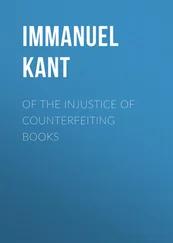The primary philosophy containing the principles of the use of pure intellect is metaphysics . But there is a science propaedeutical to it, showing the distinction of sensuous cognition from intellectual, a specimen of which we present in this dissertation. Empirical principles not being found in metaphysics, the concepts to be met with in it are not then to be sought for in the senses, but in the very nature of pure intellect; not as connate notions, but as abstracted from laws whose seat is in the mind, by attending to the actions of the mind on the occasion of experience, and hence as acquired . Of this species are possibility, existence, necessity, substance, cause, etc., with their opposites and correlates, which, never entering as parts into any sensual representation, can by no means have been abstracted thence.
The purpose of intellectual concepts is mainly twofold; in the first place refutative , by which they are of negative use, when, shutting off sensuous concepts from noumena, though not advancing science a hair’s breadth, they maintain however its immunity from the contagion of error. In the second place dogmatic , following which the general principles of pure intellect, such as are set forth in ontology or rational psychology, go forth into an exemplar inconceivable except by pure intellect, and the common measure of all other things considered as realities, namely, noumenal perfection . The latter is such either in the theoretical or in the practical sense. [3]In the former it is the highest being, God . In the latter sense, it is moral perfection . Moral philosophy , then, inasmuch as supplying the first principles of judgment , is not cognized except by pure intellect, and itself belongs to pure philosophy, and Epicurus reducing its criteria to deduction from the sense of pleasure or pain is rightly reprehended, together with some moderns following him a certain distance from afar, as Shaftesbury and his adherents. In any class of things having variable quantity the maximum is the common measure and the principle of cognition. Now the maximum of perfection is called ideal , by Plato, Idea—for instance, his Idea of a Republic—and is the principle of all that is contained under the general notion of any perfection, inasmuch as the lesser grades are not thought determinable but by limiting the maximum. But God, the Ideal of perfection, and hence the principle of cognition, is also, as existing really, the principle of the creation of all perfection.
To man, no intuition of intellectual concepts is given, only symbolical cognition , and intellection is granted us only by universal concepts in the abstract, not by the concrete singular. For all intuition is restricted by some principle of form under which alone anything can be discerned by the mind immediately or as singular , and not merely conceived discursively by general concepts. This formal principle of our intuition—space and time—is the condition under which something can be an object of our senses, and hence as a condition of sensuous knowledge is not a medium for intellectual intuition. Besides, all the material of our cognition is given only by the senses, but the noumenon, as such, is not conceivable by representations drawn from sensations; hence the intellectual concept, as such, is destitute of all data of human intuition. For the intuition of our mind is always passive , and therefore possible only to the extent to which something can affect our senses. But the divine intuition, the cause—not the consequence, of objects, being independent, is the archetype, and hence perfectly intellectual.
But although phenomena are properly the appearances of things, but not ideas, or express the inner and absolute quality of objects, their cognition is nevertheless of the truest. For in the first place, being apprehended sensual concepts, they, being consequences, witness the presence of the object, contrary to Idealism; and as regards judgments concerning that which is sensuously known, since truth in judging consists in the agreement of the predicate with the given subject, and since the concept of the subject as a phenomenon is given only by relation to the sensuous cognitive faculty, the sensuously observable predicates being given according to the same, it is plain that the representations of subject and predicate are made according to common laws, and hence give occasion for perfectly true cognition.
All sense-objects are phenomena, but that which, not touching our senses, contains the form only of sensuality, belongs to pure intuition, that is, an intuition devoid of sensations, but not on that account, intellectual. Phenomena of the external sense are examined and set forth in physics; those of the internal sense in empirical psychology. But pure human intuition is not a universal or logical concept under which , but a singular in which all sensible objects are thought, and hence contains concepts of space and time, which, since they determine nothing concerning sensible objects as to quality , are not the objects of science except as to quantity . Hence pure mathematics considers space in geometry and time in pure mechanics . To these is to be added a certain concept, intellectual to be sure in itself, but whose becoming actual in the concrete requires the auxiliary notions of time and space in the successive addition and simultaneous juxtaposition of separate units, which is the concept of number treated in arithmetic . Pure mathematics, then, expounding the form of our entire sensuous cognition, is the organon of all intuitive and distinct knowledge, and since its objects are not only the formal principles of all intuition, but themselves original intuitions, it confers cognition both perfectly true, and the model of the highest degree of clearness to others. There is given, therefore, a science of sensual things , though being phenomena there is not given a real intellection, but a logical one only; hence it is plain in what sense those borrowing from the Eleatic school are to be thought to have denied a science of phenomena.
SECTION III
ON THE PRINCIPLES OF THE FORM OF THE SENSIBLE WORLD
Table of Contents
The principle of the form of a universe is that which contains the cause of the universal tie by means of which all substances and their states pertain to one which is called a world . The principle of the form of the sensible world is that which contains the cause of the universal tie of all things regarded as phenomena . The form of the intelligible world acknowledges an objective principle, that is, some cause by which it is the colligation of what exists in it. But the world regarded as phenomenon, that is, in respect to the sensibility of the human mind, acknowledges no principle of form but a subjective one, that is, a certain mental law by which it is necessary that all things qualified for being objects of the senses would seem to pertain necessarily to the same whole. Whatever be, therefore, the principle of the form of the sensible world, it will comprise only actual things in as far as thought of as possibly falling under sense-perception; hence neither immaterial substances, which as such are excluded by definition from the external senses altogether, nor the cause of the world, which, since by it the mind exists and has the power of sense-perception, cannot be the object of the senses. These formal principles of the phenomenal universe which are absolutely primary, universal, and, so to speak, the outlines and conditions of anything else whatsoever in human sensuous cognition, I shall now show to be two: time and space.
Читать дальше












